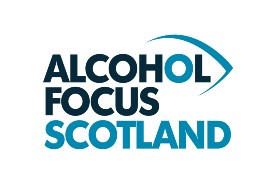Alcohol Information
- Alcohol and COVID19
- Alcohol facts and figures
- Local Alcohol Profiles
- Alcohol and health
- Drinking too much?
- Find an alcohol service
- Alcohol and young people
- Alcohol and older people
- Alcohol and pregnancy
- Fetal Alcohol Spectrum Disorder in Scotland
- Drink and the driver
Alcohol and mental health

Alcohol and physical health
Alcohol is linked with more than 60 diseases and conditions.

Alcohol poisoning
Alcohol poisoning occurs when a toxic amount of alcohol is consumed, usually over a short period of time. Excessive alcohol consumption can slow or even shut down automatic functions such as breathing, heartbeat and gag reflex (prevents choking). Without emergency medical treatment, alcohol poisoning can be fatal.
Liver
Drinking to excess produces a spectrum of liver damage. Drinking a lot of alcohol can cause a build up of fats in the liver. This in itself is not harmful and quickly reverses when alcohol is withdrawn, but it is an indication of liver damage.
Alcoholic hepatitis is more serious liver damage and occurs when alcohol misuse over a longer period of time causes the tissues of the liver to become inflamed. While this damage is reversible, severe alcoholic hepatitis is a life-threatening illness.
Liver cirrhosis occurs as a result of continuous damage; the liver becomes permanently scarred and stops functioning normally.
Cancer
Alcohol is classified by the International Agency for Research on Cancer (IARC) as a group 1 carcinogen, meaning it can cause cancer in humans. Tobacco and asbestos are other substances in this group.
Alcohol is a recognised risk factor for cancers of the breast, liver, bowel, mouth, throat, larynx (voice box) and oesophagus.
It's estimated that alcohol is responsible for around 4% of cancers in the UK, about 12,500 cases a year.
Heart disease and stroke
Regularly drinking too much can raise blood pressure over time. This in turn increases the risk of heart disease and stroke.
Weight gain
Alcoholic drinks are high in calories. A large glass of wine and pint of lager both contain around 200 calories, Being overweight carries a number of health risks including high blood pressure and diabetes.
Gastrointestinal system
Short, heavy bouts of drinking as well as heavy drinking over the longer term, may result in the development of gastritis with nausea, vomiting and stomach pain. Too much alcohol also makes it more difficult for the body to absorb valuable nutrients.
Pancreas
The pancreas produces digestive enzymes and the hormones which regulate blood sugar levels. Heavy drinking can result in the development of acute and chronic pancreatitis; an inflammation of the pancreas.
Fertility
Regularly drinking too much can affect fertility for both men and women. Alcohol should be avoided when pregnant or trying to conceive.
Alcohol-related brain damage
People with a history of alcohol misuse may have symptoms including confusion and memory loss. This occurs as the result of the damage that alcohol does to brain tissue, and nutritional deficiencies from heavy drinking. Wernicke-Korsakoff syndrome is a dementia-like illness which causes memory loss.
